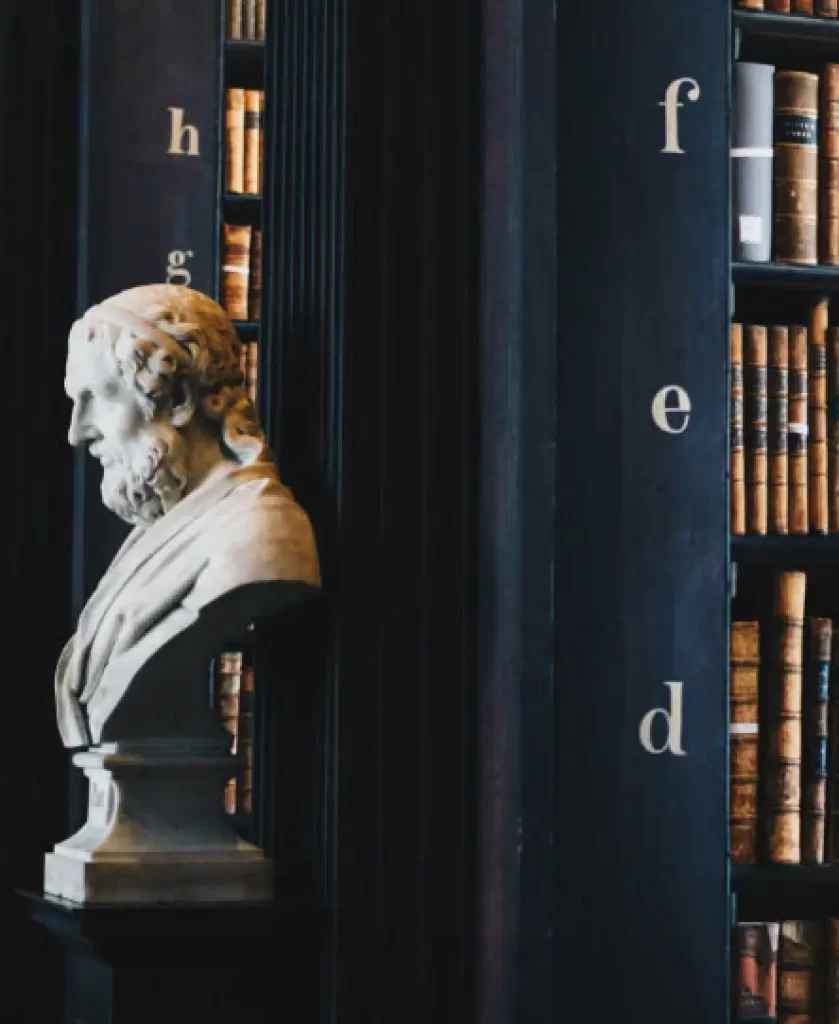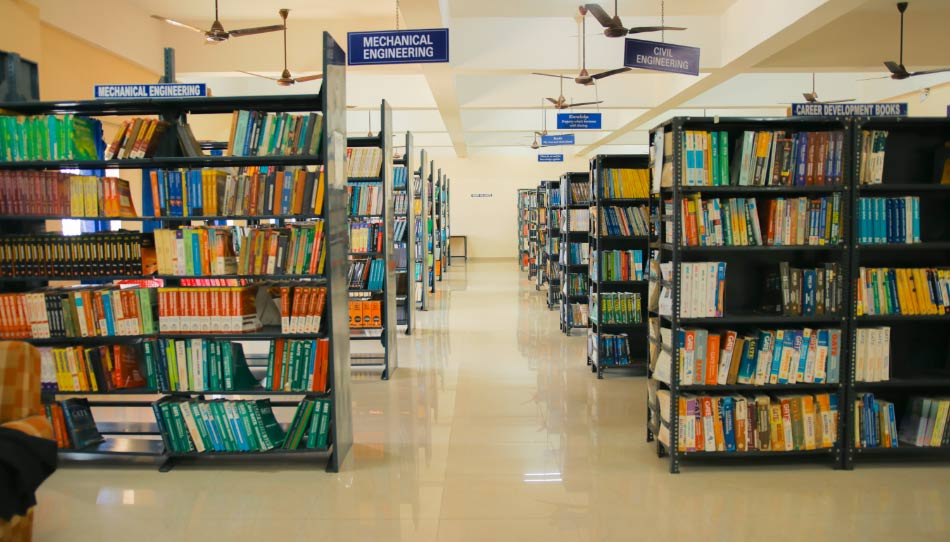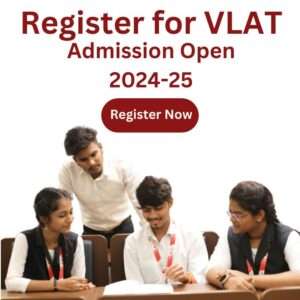Know Us Better
About Us
Vision and Mission
Vinayaka Mission’s Law School (VMLS), a constituent college of the Vinayaka Mission’s Research Foundation – Deemed to be University, Salem, is mentored by the finest law school in India, Jindal Global Law School (QS World University Rankings 2024 – No. 1 in India, No. 72 in the world), and the OP Jindal Global University, Sonepat. VMLS’ vision is to pioneer the fourth wave of Indian legal education, which is focused on excellence through inclusivity and addressing the pressing needs of access to justice at the local level through a global outlook and exacting benchmarks of high-quality lawyering.
As part of this vision, VMLS lays emphasis on bilingual education and student-centric pedagogy, the integration of technology and transitions on its account into the design and curriculum of all its programs, a new paradigm for understanding the legal and policy framework in the light of climate change and sustainability, and extensive skill-building for its learners to succeed in the 21st century workplace, one that is constantly being moulded and disrupted on account of advances in artificial intelligence and machine learning. These four dimensions cumulatively constitute our mission to attain the noble vision stated above.
The Blueprint of our Mission
Our bilingual education model is built on three action agendas: enhancing access to legal and course materials in Tamil for the benefit of learners who are yet to develop complete comfort with the English language; creating an inclusive classroom where both course faculty and the students support each other by bringing their competencies in English and Tamil to the table for mutual benefit and understanding; and using learning tools like visual aids, pedagogical approaches like design thinking, and activities like trial moot court competitions and policy debates in Tamil, to enhance the comprehension of our learners.
The integration of technology is a project that takes place at three different levels in VMLS. The first is through a significant upgrade on the Bar Council of India’s model curriculum, integrating the march of technology and its concomitant impact on core courses such as criminal law, law of torts, law of contracts, consumer protection law, property law, taxation, company law and all other foundational subjects, through the introduction of specific modules within each course that advance this objective. The second level is that of course electives that students can choose to pursue, which in turn equip them to handle emerging areas like cybersecurity and cyber frauds, data protection, blockchain and fintech regulation, gaming and e-sports, and other niche fields. The third level entails training them to handle a world of paperless courts, virtual hearings, and all other state-of-the-art technological interventions poised to upend the way justice delivery works at present, both in courtrooms and in other dispute resolution settings like arbitration and mediation. Our Centre for Justice through Technology, inaugurated in November 2023 by Hon’ble Justice (retd.) Dr. S. Muralidhar, former Chief Justice of the Odisha High Court, deserves special mention here as one of our centres of excellence that plays an instrumental role in contextualizing our curriculum and training to the emerging needs of an AI and ML-powered data-driven world.
VMLS also takes pride in its emphasis on diversity and sustainability, especially in a world that is steadfastly confronting the uncertainties associated with climate change. Our emphasis on law and regulation as a major part of the curriculum and electives, redrawing of the standard environmental law course to bring in comparative, multidisciplinary and public policy insights that equip our learners to understand the impact of climate change on our law and policy framework, the infusion of ESG norms into the teaching of traditional corporate law and securities law, and the reframing of employment law from the perspective of diversity and inclusivity at the workplace, are all part of our larger commitment to this mission.
Finally, our commitment to skills is a true reflection of our belief that legal education is ultimately meant to serve the person on the street as much as multinational corporations and law firms. In line with our thinking that society will only see a change for the better if well-trained, highly skilled lawyers enter the profession at its lowest levels and commit themselves to trial advocacy, we train them in a range of skills. At the heart of such skilling up is our emphasis on language skills, advanced primarily through our Centre for Global Tamil Law as well as our Communications and English Language Lab. Through various initiatives undertaken by the Centre and the Lab respectively, we aim to make our students effective communicators. We also invest heavily in their ability to present information in more digital settings, to take leadership initiative and collaborate effectively, and to hone their critical thinking and active reading capabilities. The advancement of such skills is an integral part of our evaluation model as well, wherein faculty are committed to problem-based and activity-based learning and evaluation over rote learning and theory-based examinations.
VMLS actively pursues its vision and mission through its highly qualified and experienced faculty, many of whom come with foreign qualifications from institutions as prestigious as the universities of Stanford, UPenn, Oxford, ISDE Spain, Melbourne, New South Wales, Hamburg, and Queen Mary in London. Our faculty colleagues aim to create a progressive learning environment where they teach law courses prescribed by the Bar Council of India, as well as Elective Courses to address legal issues of a dynamic society and an ever-changing world. Many of them are also accomplished researchers in their field, publishing in international and national law reviews of repute and spearheading funded research projects where students get to collaborate with faculty and finetune their research skills.
Dr. Vincent Comraj
Dean
Vice Chancellor's Message
Legal education, across the globe has a unique place in academics. Today a Law graduate shall be equipped with adequate knowledge, skills and confidence to make a choice to embrace the field beyond traditional litigation sector. Globalization and Information Technology have opened the floodgates of opportunities in all sectors including legal service. Today, Law Schools are compelled to change their approach in content, delivery and mindset to meet the demands of the students and the profession. Premeir law schools are endeavoring very hard to meet these demands.
Warm Welcome, let’s grow together!
Joint Implementation Committee
To achieve its Vision and Mission and implement the Institutional Mentorship Agreement with JGU and JGLS, VMLS is steered by a Joint Implementation Committee (JIC) set up by VMRF and O.P. Jindal Global University (OPJGU), which consists of legal experts, well-experienced practitioners and academicians with an interest, background, and commitment to the cause of quality legal education and legal skill development. The Members of the JIC bring practical insights and provide advice towards the development of VMLS Administration. The distinguished members of the Committee are:
Dr. Antony Francis Julian, Chairperson
Prof. (Dr.) C. Rajkumar, Permanent invitee
Prof. (Dr.) Ananth Padmanabhan, Ex officio-member
Mr. Senthil Kumar , Member Secretary
Mr. J. Suresh Samuel, Member
Mr. Vivek Dhokalia, Member
Prof. Anand Prakash Mishra, Member
Prof. (Dr.) Sreejith S. G, Member
Mr. Antony R. Julian, Member

Board of Advisors
VMLS is advised by a Board of Advisors comprising of eminent legal luminaries.
Indu Malhotra
Retired Judge; Senior Counsel of the Supreme Court of India
Mr. Justice P. Kalaiyarasan
Former Judge, Madras High Court, Chairman, Tamil Nadu State Official Language Commission.
Padma Sri Dr. T.K.Viswanathan
Former Secretary - General of Lok Sabha; Former Secretary, Ministry of Law and Justice, Government of India
Prof. Dr. Chockalingam
Chairperson, Rajiv Gandhi National Institute of Youth Development, (RGNIYD); Vice President, World Society of Victimology; Former Vice Chancellor, M.S.University, Tirunelveli, Tamil Nadu
Mr. Promod Nair
Senior Advocate, High Court of Karnataka; Solicitor-Advocate, England and Wales

Campus Life
Walking and cycling are the most popular ways to get around the campus. And with state-of-the-art security and 24 hour emergency services, it’s the safest place to be. There’s never a dull moment on campus, as the activities on offer are as diverse and varied too – from entertainment to extra-curricular or even religious pursuits.
It’s a ‘mini world’ out there – with students from all over India and even from other parts of the world choosing to study at AVIL. The campus too reflects this cosmopolitan aspect of the student community, with celebrations of regional festivals. Living and learning together infuse self-confidence and a spirit of comradeship amongthe students and contributes to a professional fraternity.


Infrastructure
The Faculty of Law is a well-structured building with a well-equipped Moot Court and library. The Moot Court is the place where students gain practical experience and training. The faculty often conducts Court competitions to improve their analytical, research, oratory skills which would enable them to be successful in their careers. The entire school is Wi-Fi connected. Our campus provides a pleasant and ragging free environment.
Functioning out of a scenic campus just off the East Coast Road in the outskirts of Chennai, the cultural capital of India, the school has air-conditioned classrooms for a comfortable study time at the school. The faculty strives to unite the speculation and observation of Law within the field through regular judicature choice to participate in numerous inter-college activities.
VMLS Library
The VMLS Library contains a vast collection of Law books, and the Library’s collection is regularly updated.
The library contains back volumes and latest issues of all premium Law Reports and Journals, including All India Reporter, Supreme Court Cases, Criminal Law Journal, Company Cases and Indian Bar Review.
The digital library is equipped with e-databases of AIR and CLJ cases, which are also available for remote access to students. We are also in the process of obtaining more e-resources and e-databases like Manupatra, SCC Online, Westworld, etc. The library Online Public Access Catalogue (OPAC) has remote access facilities where students can browse the library collection and request books, renew their subscriptions and suggest new books for the library. The OPAC also provides links to open access e- resources, e-books, e-newspapers and all Government of India e-resources.






